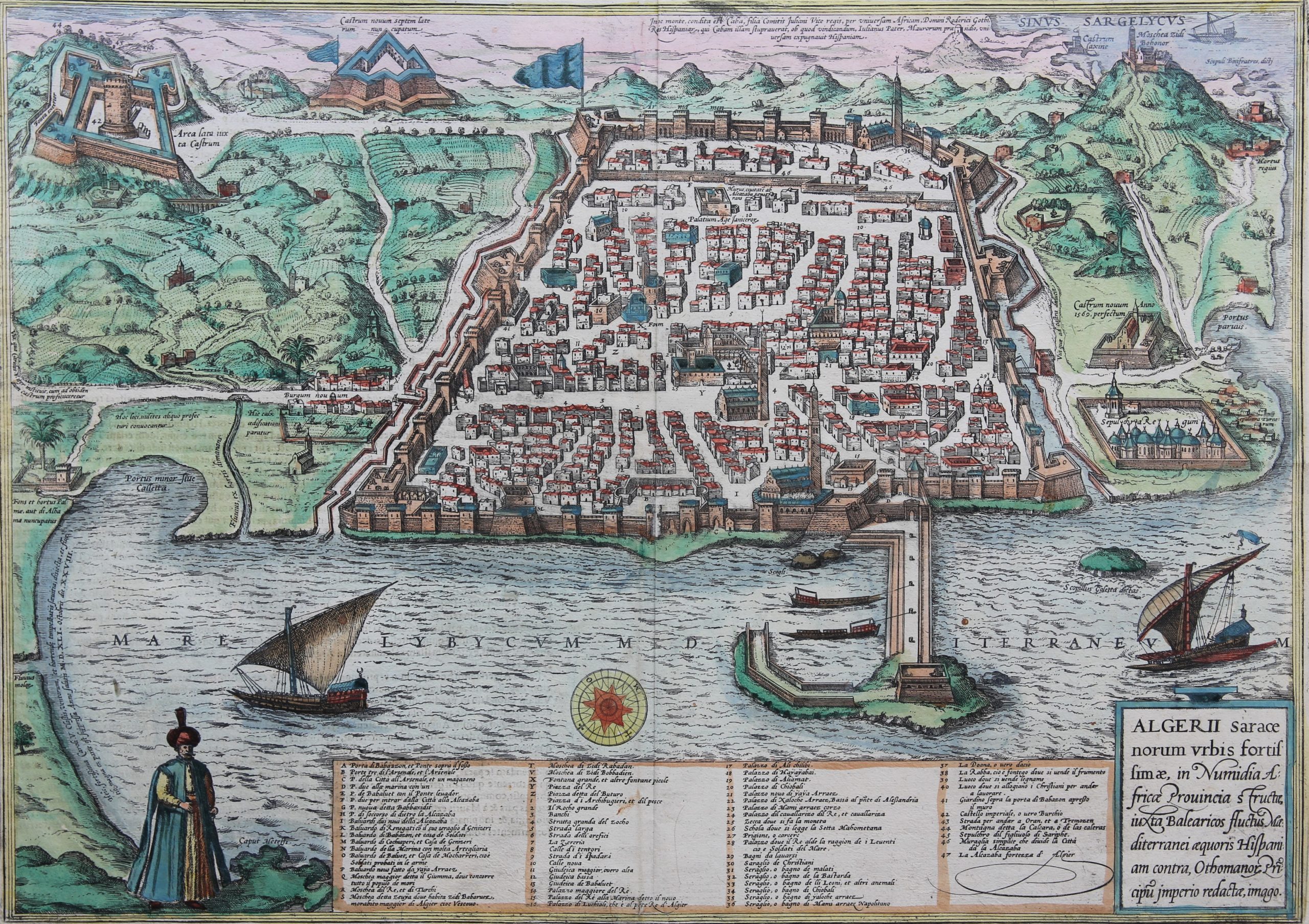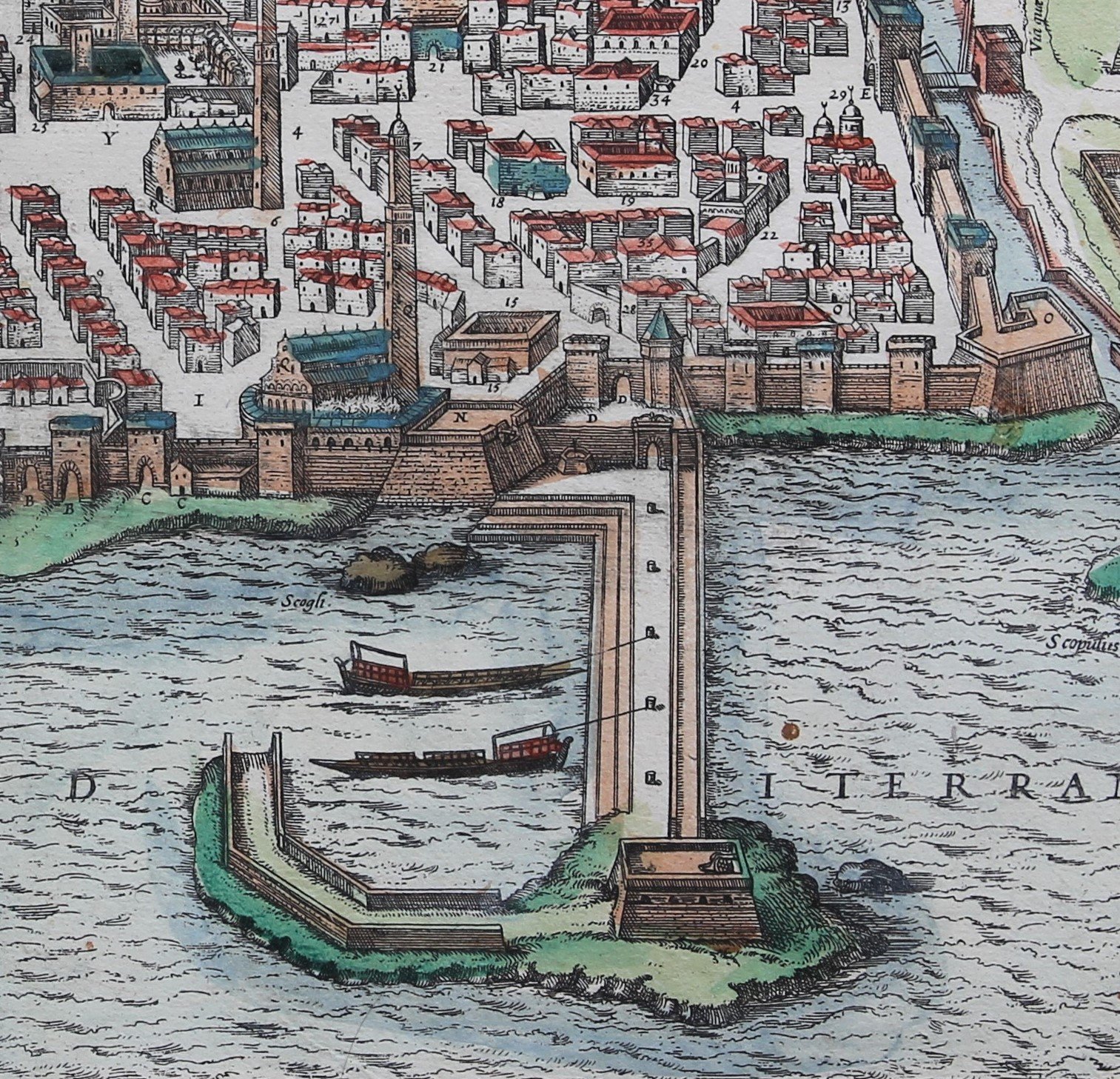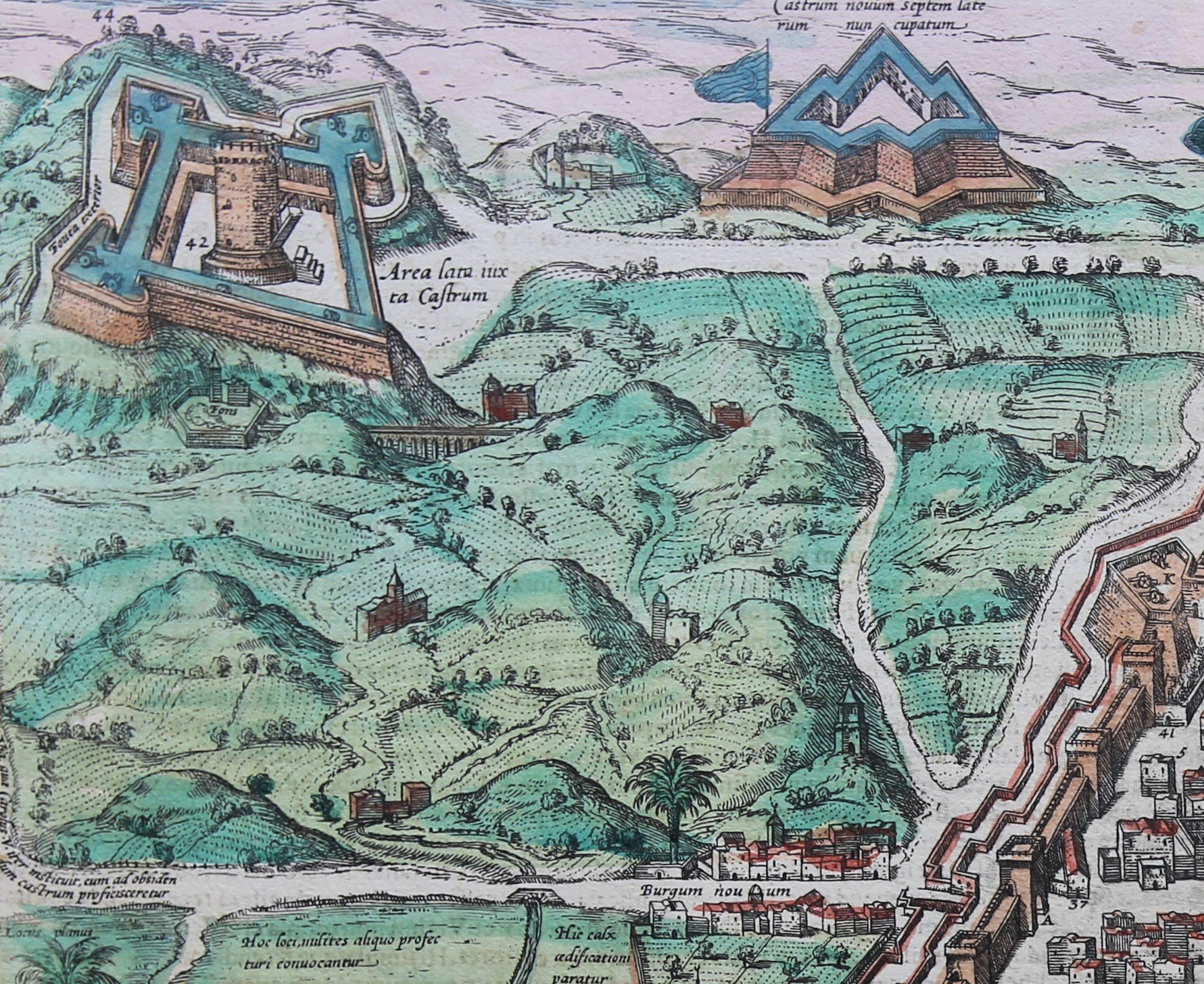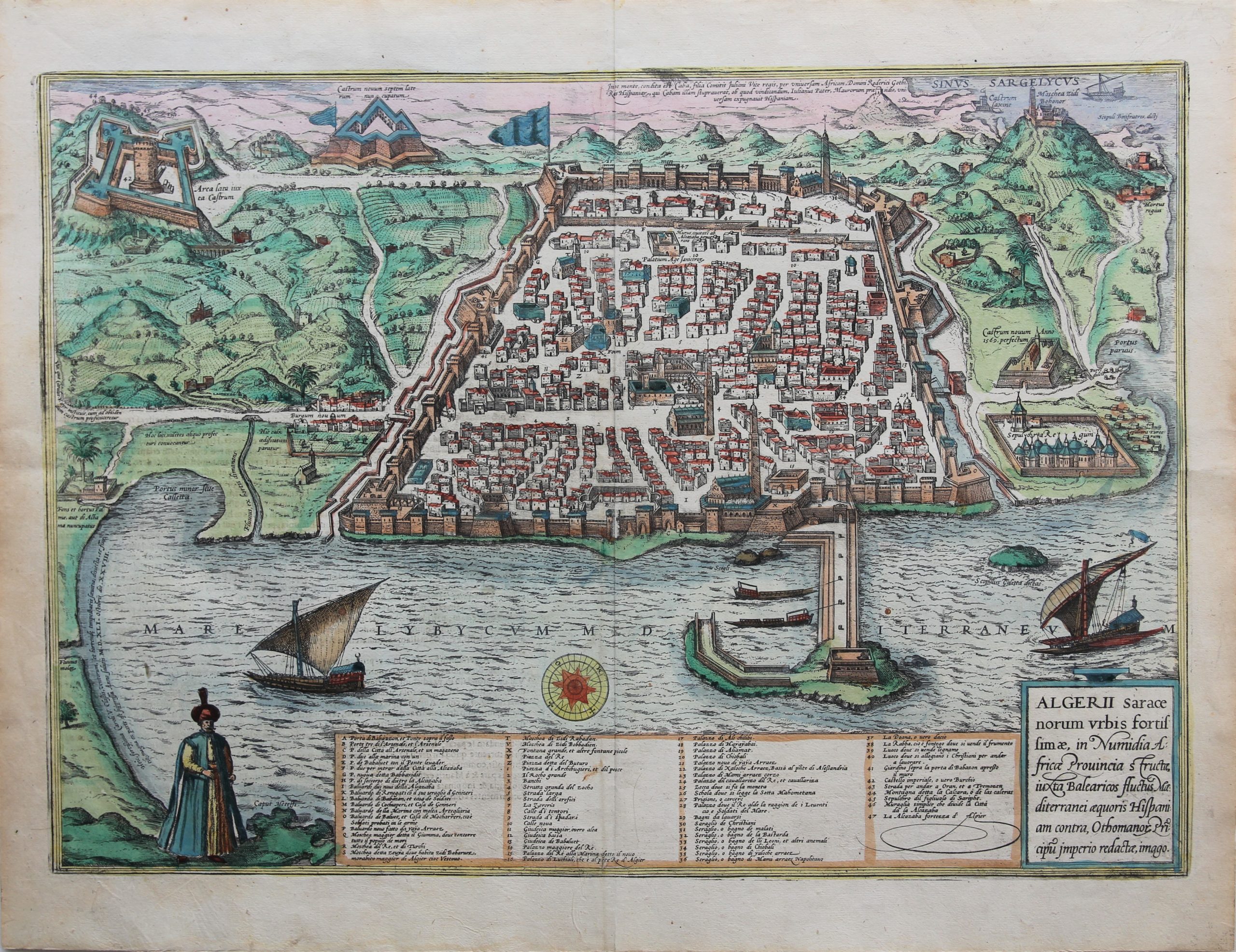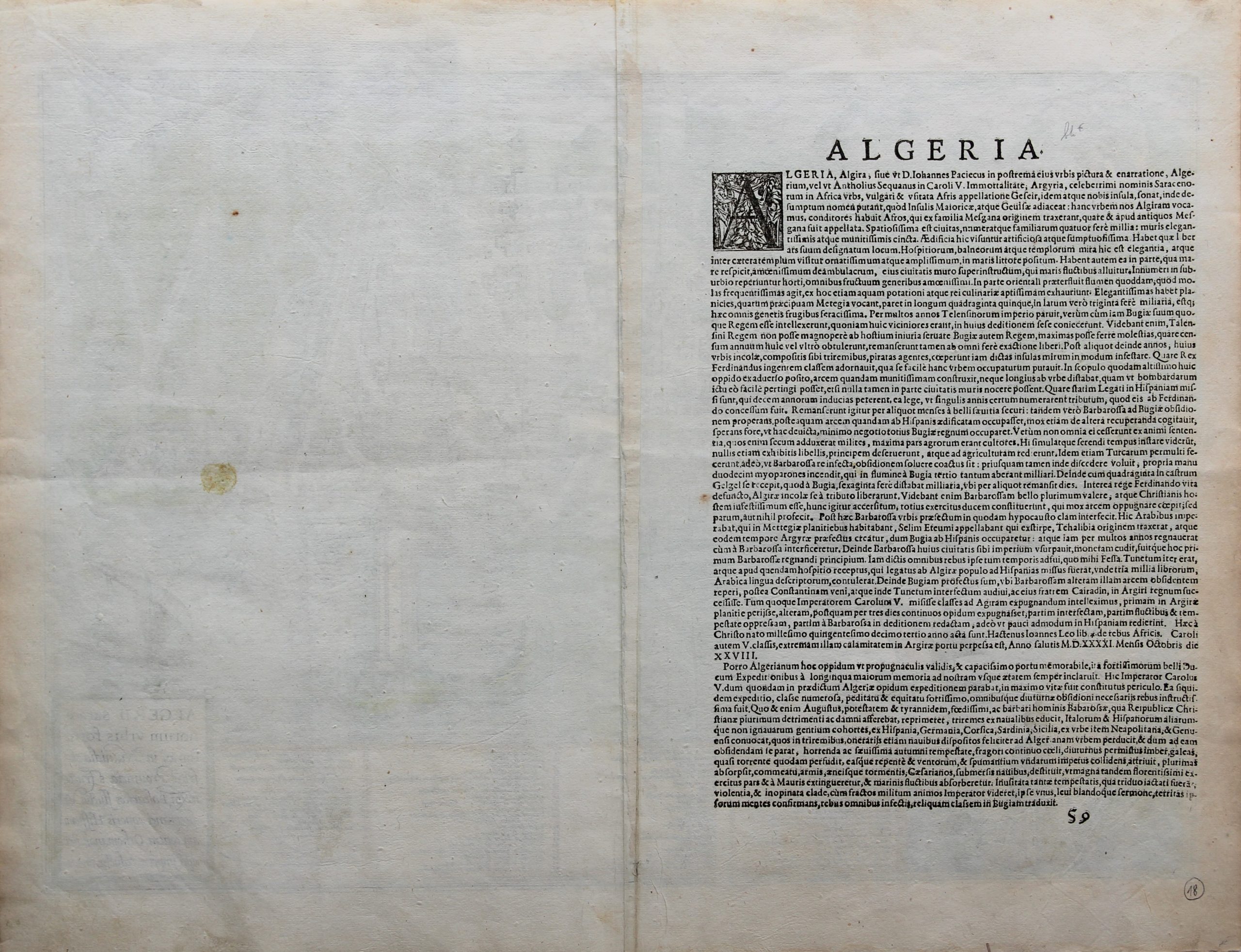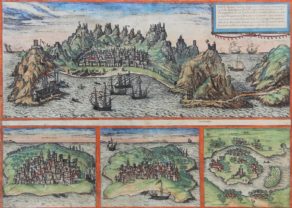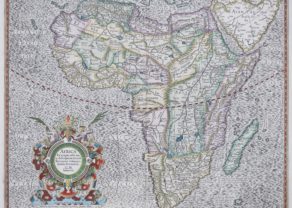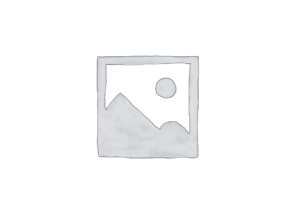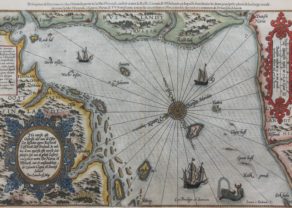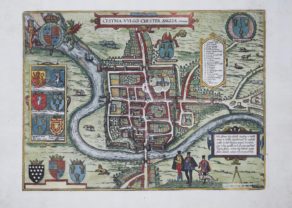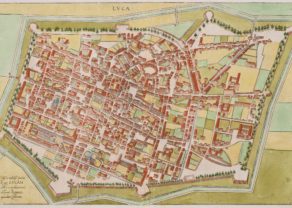Algiers
Detail
Date of first edition: 1575
Date of this edition: 1575-1612
Dimensions (not including margins): 35 x 49 cm
Dimensions (including margins): 41,8 x 53,8 cm
Condition: excellent. Sharp copper engraving printed on paper. Centre fold is as published. Original coloured. Wide margins. Slightly age-toned.
Condition rating: A
Verso: text in Latin
Map reference: van der Krogt IV, 2, 1, 73; Taschen, Br. Hog., p. 199.
From: Civitatis Urbis Terrarum (II: De Praecipuis, Totius Universi Urbibus, Liber Secundus), Köln; Van der Krogt, IV, 2, 1, 41:1-3
In stock
Algiers commented by Braun
“The inhabitants of Algiers go on raids, cruising the ocean with scores of galleys, and have laid waste to the islands of Majorca, Minorca and Formentera on numerous occasions. Hence King Ferdinand has commenced an immense naval attack against the town and has constructed a castle across from it, on top of a high peak, as far away as a rifle can shoot, although it couldn’t do any damage to the city walls.”
Translation of cartouche text: View of Algiers, the most powerful town of the Saracens, built in the Numidian province of Africa. Situated on the edge of the Balearic Current in the Mediterranean Sea, across from Spain. Under Ottoman rule.
Comprehensive index in Spanish: A – Z and 1 – 47.
Taschen on Algiers
The plate of Algiers depicts the formidably fortified town in a low bird’s-eye view, with a figure bottom left dressed in a turban and kaftan, the colouring of which matches that of the surrounding countryside. The fortress-like layout of the town conveniently located on a harbor features a well-laid out Old Town with five mosques, including, in the foreground, the Great Mosque (Q) from the 11th century. While Algiers belonged to the Kingdom of Aragon after the Reconquista in 1492, in the early 16th century many Moors, Moriscos and Corsairs made Algiers and Tunis their base. Among others Ferdinand, the Catholic, campaigned against their piracy; on the other side the Turks helped the North Africans and, with the exception of Morocco, the land became part of the Ottoman Empire in 1518-1519. Algiers is today the capital of Algeria, in which approximately 2.2 million people live.
Related items
-

Four unique maps: the Portuguese going for spices
by Georg Braun and Frans HogenbergPrice (without VAT, possibly to be added): €2 750,00 / $3 052,50 / £2 447,50Going for Spices!
-

Africa – Africa Ex magna orbis terrae descriptione
by Gerard Mercator jr., grandson of Gerard Mercator, Henricus HondiusPrice (without VAT, possibly to be added): €1 800,00 / $1 998,00 / £1 602,00
